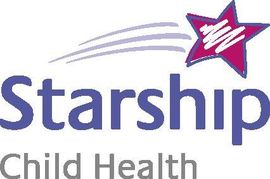Central Auckland > Public Hospital Services > Starship Child Health >
Starship Paediatric Orthopaedics
Public Service, Paediatrics, Orthopaedics
Description
- fractured bones
- torn or inflamed muscles, tendons and cartilage
- infections in bones or joints
- pain in a joint or bone
- disorders of the formation of joints e.g hip dysplasia
- disorders of the growth of bones e.g skeletal dysplasias
- clubfoot or other foot differences
- curvature of the spine and other spinal deformities.
Some babies are born in a way that makes their risk of having abnormal hips a little greater. These babies should be assessed by your GP who will refer some of these babies for an ultrasound or x-ray. Some will need to be checked by an orthopaedic surgeon.
Fractures, except for the most minor ones, are treated by orthopaedic surgeons as they have the expertise to assess the damage around the fracture and ensure the best function is obtained after the fracture is mended. Because most children are very active they fracture bones and injure muscles and tendons. Minor fractures in small children are often "buckle fractures" and some of these can be treated by your A+ E clinic or by some GPs and they do not need to come to Starship.
Most spinal conditions (especially minor curves in the spine) do not need a surgical operation. A small number of serious spinal conditions do need surgery. Your GP will tell you if your child's condition is one that could benefit from an orthopaedic surgical opinion.
Some children develop disorders in which their walking (gait) looks abnormal. You should ask your GP if your child's gait is normal. Some cases of abnormal gait need to be assessed by an orthopaedic surgeon but most do not. Your GP is the best person to advise on your child. Some common conditions affecting gait are described below.
Some children develop "knock knees" and others get "bow legs". Some get "intoeing". Most of these cases do not need to be seen by an orthopaedic surgeon. There are more detailed descriptions of these conditions below.
If you are worried about your child, see your family doctor. GPs are the best people to decide whether your child needs a referral to an orthopaedic surgeon.
Consultants
-
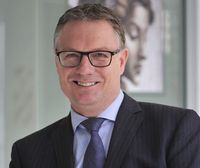
Mr Murray Beagley
Plastic Surgeon
-

Dr Theresa Bidwell
Orthopaedic Surgeon
-
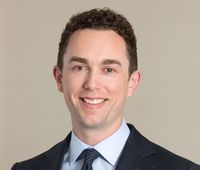
Mr Matthew Boyle
Orthopaedic Surgeon
-
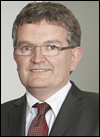
Mr Haemish Crawford
Orthopaedic Surgeon
-
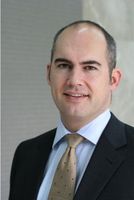
Mr Antony Field
Orthopaedic Surgeon
-
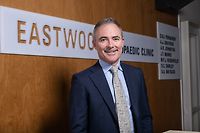
Mr Andrew Graydon
Orthopaedic Surgeon
-

Mr Anand Segar
Orthopaedic Surgeon
-

Professor Susan Stott
Professor of Paediatric Orthopaedic Surgery and Paediatric Orthopaedic Surgeon
-
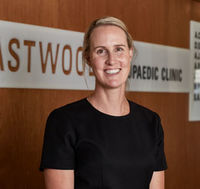
Stephanie Van Dijck
Orthopaedic Surgeon
-
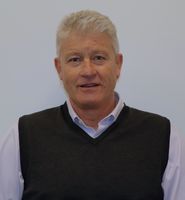
Mr Stewart Walsh
Orthopaedic Surgeon
-
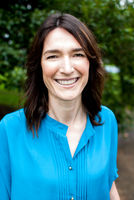
Dr Nichola Wilson
Orthopaedic Surgeon
Referral Expectations
Your child must be assessed by your GP before they can be referred to the Children's Orthopaedic Department at the Auckland Hospital (Starship site).
As there is only a certain amount of money and a limited number of specialists working at the hospital, it is not possible for the Orthopaedic Department to see every patient who is referred, but the important and serious conditions will always be seen.
If the referral is accepted, an appointment time will be sent directly to you. If you do receive an appointment, please turn up on the day because, if you do not turn up, you will deprive another patient of this valuable appointment.
For urgent conditions e.g. serious infections, your child will be seen right away. For other conditions there are two options:
1. The referral letter will be returned to the GP and they will be asked to manage the condition based on expert advice given to him/her from a Starship doctor.
2. An appointment will be sent to you with advice that there will be a waiting time before your child can be seen.
If you receive an appointment you will need to go to Outpatients on Level 3 of Starship Children's Hospital where your child will be assessed by specialised doctors. This usually takes several hours and may involve additional tests.
Recommendations and options regarding your child's future treatment plan will be discussed with you.
You need to bring to the appointment:
- Any letters or reports from your doctor or another hospital.
- Any hard copy X-Rays, CT or MRI films and reports.
- Information about the medicines that your child is currently taking including herbal and natural remedies.
- Your child's pharmaceutical entitlement card.
Fees and Charges Description
There are no charges for New Zealand citizens or those with permanent New Zealand residency when they are treated in the public hospital. All non-residents and visitors to New Zealand will be billed for the full cost of the consultations and treatment.
The only exception to this is for the treatment of accidents where the cost of treatment can be paid for by the Accident Compensation Corporation (ACC).
Hours
OUTPATIENT CLINICS You must have a referral from your GP and you have to have been allocated an appointment before you can attend these clinics.
Fracture clinics: Tuesday, Thursday and Friday afternoons.
General Outpatient clinics: Monday- Friday.
Time of the clinic is dependent on the Surgeon you are seeing.
Clubfoot clinic: Wednesday mornings
Emergency cases such as injuries can be seen any time but must be referred via the Starship Emergency Department.
Common Conditions / Procedures / Treatments / Services
Intoeing (pigeon toed) is common in children and is often considered a normal part of development. Your child's gait pattern will improve over time without the need for treatment. Most children that intoe stop doing so by the age of 8 to 10 years. It is extremely rare to operate on this condition. What is intoeing? Intoeing develops from one of three areas: the foot, the knee, or the hip: Foot (metatarsus adductus). This is the most common cause of intoeing from birth to two years of age. It is believed to be caused by the positioning of the baby's foot in the uterus or from family history. If the foot is flexible and can be gently pulled into the correct position, no treatment is necessary. If the foot is rigid, and your child is under eight months of age, your doctor may recommend casting Knee (tibial torsion). This is usually noticed during the second year of life after the child has started walking. The shinbone (tibia) is slightly twisted or rotated causing the foot to turn inward. This may be caused by the positioning of the baby's foot in the uterus or from family history. It is also related to bow legs and gets better as the bow legs improve with growth Hip (femoral anteversion). Children between the ages of three and seven may walk with their kneecaps pointing inward. This is caused by a slight rotation of the top of the hip bone (femur) in the socket of the hip. This is very common especially in girls aged between 3 and 7 years. Out-toeing usually occurs during the first year of life. It is due to the position of the hips within the uterus and will resolve without treatment. What is the treatment for intoeing? The best treatment is observation. You can take pictures each year of your children standing and then compare the progression of the straightening process. In very rare instances a bone cutting operation to correct rotation can be done after the age of 12-14 years if at that stage the child is close to fully grown, intoeing is still severe and has still not resolved. Facts about intoeing Intoeing is common in children There are no braces, cables or orthotics that will make the slightest bit of difference. Many years ago these were used but it has been proved that they are NOT effective Falling is part of learning to walk and is not exclusively caused by intoeing Intoeing will not affect your child's ability to walk, or run or play even if it persists into adulthood.
Intoeing (pigeon toed) is common in children and is often considered a normal part of development. Your child's gait pattern will improve over time without the need for treatment. Most children that intoe stop doing so by the age of 8 to 10 years. It is extremely rare to operate on this condition. What is intoeing? Intoeing develops from one of three areas: the foot, the knee, or the hip: Foot (metatarsus adductus). This is the most common cause of intoeing from birth to two years of age. It is believed to be caused by the positioning of the baby's foot in the uterus or from family history. If the foot is flexible and can be gently pulled into the correct position, no treatment is necessary. If the foot is rigid, and your child is under eight months of age, your doctor may recommend casting Knee (tibial torsion). This is usually noticed during the second year of life after the child has started walking. The shinbone (tibia) is slightly twisted or rotated causing the foot to turn inward. This may be caused by the positioning of the baby's foot in the uterus or from family history. It is also related to bow legs and gets better as the bow legs improve with growth Hip (femoral anteversion). Children between the ages of three and seven may walk with their kneecaps pointing inward. This is caused by a slight rotation of the top of the hip bone (femur) in the socket of the hip. This is very common especially in girls aged between 3 and 7 years. Out-toeing usually occurs during the first year of life. It is due to the position of the hips within the uterus and will resolve without treatment. What is the treatment for intoeing? The best treatment is observation. You can take pictures each year of your children standing and then compare the progression of the straightening process. In very rare instances a bone cutting operation to correct rotation can be done after the age of 12-14 years if at that stage the child is close to fully grown, intoeing is still severe and has still not resolved. Facts about intoeing Intoeing is common in children There are no braces, cables or orthotics that will make the slightest bit of difference. Many years ago these were used but it has been proved that they are NOT effective Falling is part of learning to walk and is not exclusively caused by intoeing Intoeing will not affect your child's ability to walk, or run or play even if it persists into adulthood.
Intoeing (pigeon toed) is common in children and is often considered a normal part of development. Your child's gait pattern will improve over time without the need for treatment. Most children that intoe stop doing so by the age of 8 to 10 years. It is extremely rare to operate on this condition.
What is intoeing?
Intoeing develops from one of three areas: the foot, the knee, or the hip:
-
Foot (metatarsus adductus). This is the most common cause of intoeing from birth to two years of age. It is believed to be caused by the positioning of the baby's foot in the uterus or from family history. If the foot is flexible and can be gently pulled into the correct position, no treatment is necessary. If the foot is rigid, and your child is under eight months of age, your doctor may recommend casting
-
Knee (tibial torsion). This is usually noticed during the second year of life after the child has started walking. The shinbone (tibia) is slightly twisted or rotated causing the foot to turn inward. This may be caused by the positioning of the baby's foot in the uterus or from family history. It is also related to bow legs and gets better as the bow legs improve with growth
-
Hip (femoral anteversion). Children between the ages of three and seven may walk with their kneecaps pointing inward. This is caused by a slight rotation of the top of the hip bone (femur) in the socket of the hip. This is very common especially in girls aged between 3 and 7 years.
Out-toeing usually occurs during the first year of life. It is due to the position of the hips within the uterus and will resolve without treatment.
What is the treatment for intoeing?
The best treatment is observation. You can take pictures each year of your children standing and then compare the progression of the straightening process. In very rare instances a bone cutting operation to correct rotation can be done after the age of 12-14 years if at that stage the child is close to fully grown, intoeing is still severe and has still not resolved.
Facts about intoeing
-
Intoeing is common in children
-
There are no braces, cables or orthotics that will make the slightest bit of difference. Many years ago these were used but it has been proved that they are NOT effective
-
Falling is part of learning to walk and is not exclusively caused by intoeing
-
Intoeing will not affect your child's ability to walk, or run or play even if it persists into adulthood.
In the first 12 months of life, bowed legs are common. The legs naturally bow outward and begin to straighten as the baby grows. By age four, it is common to see knock knees or genu valgum. The child walks or runs with his knees very close together, perhaps even touching when walking. Usually between the ages of seven to ten the legs become straight. Mild knock knees may persist into adulthood. A family history is common. In some cases, the knock knees are due to injury to the soft growth areas in the bones near the knees. Very rarely it can be caused from infection in the bone or arthritis of the joint. Despite understandable concern, knock knees do not usually cause problems in later life. Most cases do not require treatment. What is the treatment for knock knees? For most children, the treatment is observation, allowing time and growth to correct the legs. You might want to take a photograph of your child standing and then another photograph several months later to follow the straightening process. There are no braces, cables or orthotics that will make the slightest difference. Only rarely is surgery needed (after 10 years of age) to help correct the leg shape through a technique called guided growth. Generally surgery is performed for cosmetic reasons and not because of medical necessity. Facts about knock knees Knock knees may continue into adulthood but should not cause any problems Children with knock knees can participate in sports Bracing will not correct the normal growth pattern of knock knees.
In the first 12 months of life, bowed legs are common. The legs naturally bow outward and begin to straighten as the baby grows. By age four, it is common to see knock knees or genu valgum. The child walks or runs with his knees very close together, perhaps even touching when walking. Usually between the ages of seven to ten the legs become straight. Mild knock knees may persist into adulthood. A family history is common. In some cases, the knock knees are due to injury to the soft growth areas in the bones near the knees. Very rarely it can be caused from infection in the bone or arthritis of the joint. Despite understandable concern, knock knees do not usually cause problems in later life. Most cases do not require treatment. What is the treatment for knock knees? For most children, the treatment is observation, allowing time and growth to correct the legs. You might want to take a photograph of your child standing and then another photograph several months later to follow the straightening process. There are no braces, cables or orthotics that will make the slightest difference. Only rarely is surgery needed (after 10 years of age) to help correct the leg shape through a technique called guided growth. Generally surgery is performed for cosmetic reasons and not because of medical necessity. Facts about knock knees Knock knees may continue into adulthood but should not cause any problems Children with knock knees can participate in sports Bracing will not correct the normal growth pattern of knock knees.
In the first 12 months of life, bowed legs are common. The legs naturally bow outward and begin to straighten as the baby grows. By age four, it is common to see knock knees or genu valgum. The child walks or runs with his knees very close together, perhaps even touching when walking. Usually between the ages of seven to ten the legs become straight.
Mild knock knees may persist into adulthood. A family history is common. In some cases, the knock knees are due to injury to the soft growth areas in the bones near the knees. Very rarely it can be caused from infection in the bone or arthritis of the joint. Despite understandable concern, knock knees do not usually cause problems in later life. Most cases do not require treatment.
What is the treatment for knock knees?
For most children, the treatment is observation, allowing time and growth to correct the legs. You might want to take a photograph of your child standing and then another photograph several months later to follow the straightening process. There are no braces, cables or orthotics that will make the slightest difference. Only rarely is surgery needed (after 10 years of age) to help correct the leg shape through a technique called guided growth. Generally surgery is performed for cosmetic reasons and not because of medical necessity.
Facts about knock knees
- Knock knees may continue into adulthood but should not cause any problems
- Children with knock knees can participate in sports
- Bracing will not correct the normal growth pattern of knock knees.
In the first 12 to 24 months of life, bowed legs are often normal. The legs naturally bow outward and begin to straighten as the baby grows. By age four, it is common to see the child become knock kneed and then by age seven to ten the legs become straight again. Bow legs often runs in families. In rare cases the bowing may be due to an abnormal growth plate at the top of the shin bone (tibia) at the knee, infection, or a specific medical condition. Your doctor will explain the cause to you. If the bowing is not equal on both legs or, if your child is older than 24 months, your doctor may want to take an x-ray of the legs. This will help decide if treatment is necessary. Very occasionally this condition may require treatment to prevent future problems. What is the treatment for bowed legs? The treatment will probably be simple observation. You may want to take a photograph of your child and then, several months later, take a second photograph to compare and to follow the straightening process. For the rarer causes of bowing, the treatment might be bracing or even surgery if the child is older. Facts about bowed legs Early walking does not always cause bowed legs Bowing that occurs as part of development does not require bracing nor surgery Bowed legs will not affect your child's ability to walk, run or play. Sometimes bowing of the legs occurs if your child does not have enough vitamin D. Your family doctor can check this for you.
In the first 12 to 24 months of life, bowed legs are often normal. The legs naturally bow outward and begin to straighten as the baby grows. By age four, it is common to see the child become knock kneed and then by age seven to ten the legs become straight again. Bow legs often runs in families. In rare cases the bowing may be due to an abnormal growth plate at the top of the shin bone (tibia) at the knee, infection, or a specific medical condition. Your doctor will explain the cause to you. If the bowing is not equal on both legs or, if your child is older than 24 months, your doctor may want to take an x-ray of the legs. This will help decide if treatment is necessary. Very occasionally this condition may require treatment to prevent future problems. What is the treatment for bowed legs? The treatment will probably be simple observation. You may want to take a photograph of your child and then, several months later, take a second photograph to compare and to follow the straightening process. For the rarer causes of bowing, the treatment might be bracing or even surgery if the child is older. Facts about bowed legs Early walking does not always cause bowed legs Bowing that occurs as part of development does not require bracing nor surgery Bowed legs will not affect your child's ability to walk, run or play. Sometimes bowing of the legs occurs if your child does not have enough vitamin D. Your family doctor can check this for you.
In the first 12 to 24 months of life, bowed legs are often normal. The legs naturally bow outward and begin to straighten as the baby grows. By age four, it is common to see the child become knock kneed and then by age seven to ten the legs become straight again.
Bow legs often runs in families. In rare cases the bowing may be due to an abnormal growth plate at the top of the shin bone (tibia) at the knee, infection, or a specific medical condition. Your doctor will explain the cause to you. If the bowing is not equal on both legs or, if your child is older than 24 months, your doctor may want to take an x-ray of the legs. This will help decide if treatment is necessary. Very occasionally this condition may require treatment to prevent future problems.
What is the treatment for bowed legs?
The treatment will probably be simple observation. You may want to take a photograph of your child and then, several months later, take a second photograph to compare and to follow the straightening process. For the rarer causes of bowing, the treatment might be bracing or even surgery if the child is older.
Facts about bowed legs
- Early walking does not always cause bowed legs
- Bowing that occurs as part of development does not require bracing nor surgery
- Bowed legs will not affect your child's ability to walk, run or play.
- Sometimes bowing of the legs occurs if your child does not have enough vitamin D. Your family doctor can check this for you.
Tuesday, Thursday and Friday afternoons. These clinics are run in Starship for patients who have had a broken bone that has already been treated and further appointments are required to check the injury to see how it is healing. Often, x-rays are taken on arrival or after your child's cast is removed. The time taken to have x-rays, casts removed and other treatments can be up to several hours. Appointments will take less time if these other procedures are not needed. Please be patient and prepared as these clinics can be busy. For more information see the Starship Website for videos and information on coming to Fracture Clinic Wire Fixation for Arm Fractures (PDF, 25.7 KB) Starship Family Information Factsheet Cast Care (PDF, 1.8 MB) Starship Cast Care Handout Manipulation of a Forearm Fracture (PDF, 27.7 KB) Starship Family Information Factsheet Broomstick Cast Care (PDF, 31.3 KB) Starship Family Information Factsheet
Tuesday, Thursday and Friday afternoons. These clinics are run in Starship for patients who have had a broken bone that has already been treated and further appointments are required to check the injury to see how it is healing. Often, x-rays are taken on arrival or after your child's cast is removed. The time taken to have x-rays, casts removed and other treatments can be up to several hours. Appointments will take less time if these other procedures are not needed. Please be patient and prepared as these clinics can be busy. For more information see the Starship Website for videos and information on coming to Fracture Clinic Wire Fixation for Arm Fractures (PDF, 25.7 KB) Starship Family Information Factsheet Cast Care (PDF, 1.8 MB) Starship Cast Care Handout Manipulation of a Forearm Fracture (PDF, 27.7 KB) Starship Family Information Factsheet Broomstick Cast Care (PDF, 31.3 KB) Starship Family Information Factsheet
Tuesday, Thursday and Friday afternoons.
-
Wire Fixation for Arm Fractures
(PDF, 25.7 KB)
Starship Family Information Factsheet
-
Cast Care
(PDF, 1.8 MB)
Starship Cast Care Handout
-
Manipulation of a Forearm Fracture
(PDF, 27.7 KB)
Starship Family Information Factsheet
-
Broomstick Cast Care
(PDF, 31.3 KB)
Starship Family Information Factsheet
Developmental dislocation of the hip (DDH), also known as congenital hip dislocation, dislocatable hip or developmental dysplasia, refers to a range of conditions in which the head (ball) of the hip bone does not fit appropriately into the hip socket at birth. The socket may be too shallow The ball may move in and out of the socket The ball may have come completely out of the socket No one knows why this happens. It is more common in: First born children Females Breech babies Babies with a family history of Hip Dysplasia It is very important to have a doctor, midwife or Plunket nurse test for this condition within the first few days after your baby is born. The condition tends to worsen as the child grows and if not treated, may result in the child learning to walk with a limp or unusual waddling gait. As an adult, the condition could cause severe pain, early arthritis and may require hip replacement surgery at a young age. This is what we hope to avoid by treating DDH. Symptoms are generally not noticeable in infants but may include: lack of symmetry to the creases in a baby's thighs, buttocks, groin one leg appearing shorter than the other one leg appearing less mobile or flexible than the other toddler who walks with a limp or waddling gait. Babies should be screened at birth for DDH by the doctor (or sometimes the midwife) and they will perform certain movements of the baby's hip joint (Ortolani and Barlow tests). If they are suspicious that there could be a problem, then diagnosis can be confirmed by ultrasound scan or X-ray if the baby is more than 4 months old. Sometimes it is dificult to detect hip problems just by examining the baby and that is why tests may be recommended by your GP such as ultrasound or X-ray. Treatment depends a lot on your child's age and what the ultrasound or X-rays shows us about the hip. There are many different ways to treat DDH. They include: Observation with repeat ultrasound or X-rays A harness or brace Surgery followed by a cast or brace. It is normal to worry about how the treatment will work for your child. Not all cases of DDH are the same and some are more difficult to treat than others, however the good news is that the majority of cases have a good result from treatment. Treatment is not always straightforward and it does carry some risk however this will be discussed with you in detail by your Orthopaedic Surgeon and our Nurse Specialist team. If you are concerned your child may have DDH please see your family doctor. They can refer you to our service if they have concerns. Often an Xray is required before we see your child but this will be discussed with you by your doctor.
Developmental dislocation of the hip (DDH), also known as congenital hip dislocation, dislocatable hip or developmental dysplasia, refers to a range of conditions in which the head (ball) of the hip bone does not fit appropriately into the hip socket at birth. The socket may be too shallow The ball may move in and out of the socket The ball may have come completely out of the socket No one knows why this happens. It is more common in: First born children Females Breech babies Babies with a family history of Hip Dysplasia It is very important to have a doctor, midwife or Plunket nurse test for this condition within the first few days after your baby is born. The condition tends to worsen as the child grows and if not treated, may result in the child learning to walk with a limp or unusual waddling gait. As an adult, the condition could cause severe pain, early arthritis and may require hip replacement surgery at a young age. This is what we hope to avoid by treating DDH. Symptoms are generally not noticeable in infants but may include: lack of symmetry to the creases in a baby's thighs, buttocks, groin one leg appearing shorter than the other one leg appearing less mobile or flexible than the other toddler who walks with a limp or waddling gait. Babies should be screened at birth for DDH by the doctor (or sometimes the midwife) and they will perform certain movements of the baby's hip joint (Ortolani and Barlow tests). If they are suspicious that there could be a problem, then diagnosis can be confirmed by ultrasound scan or X-ray if the baby is more than 4 months old. Sometimes it is dificult to detect hip problems just by examining the baby and that is why tests may be recommended by your GP such as ultrasound or X-ray. Treatment depends a lot on your child's age and what the ultrasound or X-rays shows us about the hip. There are many different ways to treat DDH. They include: Observation with repeat ultrasound or X-rays A harness or brace Surgery followed by a cast or brace. It is normal to worry about how the treatment will work for your child. Not all cases of DDH are the same and some are more difficult to treat than others, however the good news is that the majority of cases have a good result from treatment. Treatment is not always straightforward and it does carry some risk however this will be discussed with you in detail by your Orthopaedic Surgeon and our Nurse Specialist team. If you are concerned your child may have DDH please see your family doctor. They can refer you to our service if they have concerns. Often an Xray is required before we see your child but this will be discussed with you by your doctor.
Developmental dislocation of the hip (DDH), also known as congenital hip dislocation, dislocatable hip or developmental dysplasia, refers to a range of conditions in which the head (ball) of the hip bone does not fit appropriately into the hip socket at birth.
- The socket may be too shallow
- The ball may move in and out of the socket
- The ball may have come completely out of the socket
No one knows why this happens. It is more common in:
- First born children
- Females
- Breech babies
- Babies with a family history of Hip Dysplasia
It is very important to have a doctor, midwife or Plunket nurse test for this condition within the first few days after your baby is born.
The condition tends to worsen as the child grows and if not treated, may result in the child learning to walk with a limp or unusual waddling gait. As an adult, the condition could cause severe pain, early arthritis and may require hip replacement surgery at a young age. This is what we hope to avoid by treating DDH.
Symptoms are generally not noticeable in infants but may include:
- lack of symmetry to the creases in a baby's thighs, buttocks, groin
- one leg appearing shorter than the other
- one leg appearing less mobile or flexible than the other
- toddler who walks with a limp or waddling gait.
Babies should be screened at birth for DDH by the doctor (or sometimes the midwife) and they will perform certain movements of the baby's hip joint (Ortolani and Barlow tests). If they are suspicious that there could be a problem, then diagnosis can be confirmed by ultrasound scan or X-ray if the baby is more than 4 months old. Sometimes it is dificult to detect hip problems just by examining the baby and that is why tests may be recommended by your GP such as ultrasound or X-ray.
Treatment depends a lot on your child's age and what the ultrasound or X-rays shows us about the hip. There are many different ways to treat DDH. They include:
- Observation with repeat ultrasound or X-rays
- A harness or brace
- Surgery followed by a cast or brace.
It is normal to worry about how the treatment will work for your child. Not all cases of DDH are the same and some are more difficult to treat than others, however the good news is that the majority of cases have a good result from treatment.
Treatment is not always straightforward and it does carry some risk however this will be discussed with you in detail by your Orthopaedic Surgeon and our Nurse Specialist team.
If you are concerned your child may have DDH please see your family doctor. They can refer you to our service if they have concerns. Often an Xray is required before we see your child but this will be discussed with you by your doctor.
Referral Recommendations for Antenatal Detection of Congenital Talipes Equino Varus (CTEV)/Clubfoot: In our experience, families of a child with a potential diagnosis of Congenital Talipes Equino Varus (CTEV)/Clubfoot during their antenatal anatomy ultrasound scan, are often less anxious when good quality and timely information is provided and when families are directed to reliable sources of information. Parental education plays an important part in the success of the CTEV/Clubfoot treatment process. Early treatment is important and families who are well informed about the potential diagnosis and treatment process make a smooth transition from delivery to the start of treatment. More frequently, identification of CTEV/Clubfoot is detected on the antenatal anatomy ultrasound examination. However, the likelihood of false positives and false negatives should be discussed together with the possibility that the condition may be associated with other anomalies. When CTEV/Clubfoot is initially detected, a referral should be made to your local Fetal Medicine Unit for a more detailed scan to look for the presence of potential associated anomalies. It is important to discuss with the family that confirmation of the actual diagnosis of club foot can only occur after the baby is born. The prevalence of CTEV/Clubfoot is 1 to 6 per 1000 live births in New Zealand and is twice as common in boys as girls. In around 50% of the cases both feet are affected. The birth prevalence varies among different ethnic groups. The highest rates are seen in individuals of Maori and Polynesian ethnicity and the lowest in Asian populations. Some families prefer to be prepared and armed with as much information on what to expect, the treatment and what will happen following the birth of their baby. Families should be reassured that CTEV/Clubfoot is a treatable condition and that the Ponseti Method is the current recommended gold standard treatment. A dedicated Ponseti clinic is run weekly here at Starship Children’s Health. At Starship Children’s Health, the antenatal education is done by the Advanced Paediatric Physiotherapist and Paediatric Orthopaedic Nurse Specialist. If the family have any further questions and/or would like an antenatal appointment, we would be happy to accept a referral. Please use eReferral system, or send/fax the referral to: Central Referrals Office on – Fax (09) 638 0402 – Attention Paediatric Orthopaedic Department
Referral Recommendations for Antenatal Detection of Congenital Talipes Equino Varus (CTEV)/Clubfoot: In our experience, families of a child with a potential diagnosis of Congenital Talipes Equino Varus (CTEV)/Clubfoot during their antenatal anatomy ultrasound scan, are often less anxious when good quality and timely information is provided and when families are directed to reliable sources of information. Parental education plays an important part in the success of the CTEV/Clubfoot treatment process. Early treatment is important and families who are well informed about the potential diagnosis and treatment process make a smooth transition from delivery to the start of treatment. More frequently, identification of CTEV/Clubfoot is detected on the antenatal anatomy ultrasound examination. However, the likelihood of false positives and false negatives should be discussed together with the possibility that the condition may be associated with other anomalies. When CTEV/Clubfoot is initially detected, a referral should be made to your local Fetal Medicine Unit for a more detailed scan to look for the presence of potential associated anomalies. It is important to discuss with the family that confirmation of the actual diagnosis of club foot can only occur after the baby is born. The prevalence of CTEV/Clubfoot is 1 to 6 per 1000 live births in New Zealand and is twice as common in boys as girls. In around 50% of the cases both feet are affected. The birth prevalence varies among different ethnic groups. The highest rates are seen in individuals of Maori and Polynesian ethnicity and the lowest in Asian populations. Some families prefer to be prepared and armed with as much information on what to expect, the treatment and what will happen following the birth of their baby. Families should be reassured that CTEV/Clubfoot is a treatable condition and that the Ponseti Method is the current recommended gold standard treatment. A dedicated Ponseti clinic is run weekly here at Starship Children’s Health. At Starship Children’s Health, the antenatal education is done by the Advanced Paediatric Physiotherapist and Paediatric Orthopaedic Nurse Specialist. If the family have any further questions and/or would like an antenatal appointment, we would be happy to accept a referral. Please use eReferral system, or send/fax the referral to: Central Referrals Office on – Fax (09) 638 0402 – Attention Paediatric Orthopaedic Department
Referral Recommendations for Antenatal Detection of Congenital Talipes Equino Varus (CTEV)/Clubfoot:
In our experience, families of a child with a potential diagnosis of Congenital Talipes Equino Varus (CTEV)/Clubfoot during their antenatal anatomy ultrasound scan, are often less anxious when good quality and timely information is provided and when families are directed to reliable sources of information.
Parental education plays an important part in the success of the CTEV/Clubfoot treatment process. Early treatment is important and families who are well informed about the potential diagnosis and treatment process make a smooth transition from delivery to the start of treatment.
More frequently, identification of CTEV/Clubfoot is detected on the antenatal anatomy ultrasound examination. However, the likelihood of false positives and false negatives should be discussed together with the possibility that the condition may be associated with other anomalies.
When CTEV/Clubfoot is initially detected, a referral should be made to your local Fetal Medicine Unit for a more detailed scan to look for the presence of potential associated anomalies.
It is important to discuss with the family that confirmation of the actual diagnosis of club foot can only occur after the baby is born.
The prevalence of CTEV/Clubfoot is 1 to 6 per 1000 live births in New Zealand and is twice as common in boys as girls. In around 50% of the cases both feet are affected.
The birth prevalence varies among different ethnic groups. The highest rates are seen in individuals of Maori and Polynesian ethnicity and the lowest in Asian populations.
Some families prefer to be prepared and armed with as much information on what to expect, the treatment and what will happen following the birth of their baby. Families should be reassured that CTEV/Clubfoot is a treatable condition and that the Ponseti Method is the current recommended gold standard treatment. A dedicated Ponseti clinic is run weekly here at Starship Children’s Health. At Starship Children’s Health, the antenatal education is done by the Advanced Paediatric Physiotherapist and Paediatric Orthopaedic Nurse Specialist.
If the family have any further questions and/or would like an antenatal appointment, we would be happy to accept a referral.
Please use eReferral system, or send/fax the referral to:
Central Referrals Office on – Fax (09) 638 0402 – Attention Paediatric Orthopaedic Department
A large number of orthopaedic procedures on joints can now be performed using an arthroscope, where a fiber optic telescope is used to look inside the joint. Through this type of keyhole surgery fine instruments can be introduced through small incisions (portals) to allow surgery to be performed without the need for large cuts. This means that many procedures can be performed as day stays and it also means that there will be a quicker return to normal function of the joint. Arthroscopic surgery is less painful than open surgery and decreases the risk of healing problems. Arthroscopy allows access to parts of the joints which cannot be accessed by other types of surgery.
A large number of orthopaedic procedures on joints can now be performed using an arthroscope, where a fiber optic telescope is used to look inside the joint. Through this type of keyhole surgery fine instruments can be introduced through small incisions (portals) to allow surgery to be performed without the need for large cuts. This means that many procedures can be performed as day stays and it also means that there will be a quicker return to normal function of the joint. Arthroscopic surgery is less painful than open surgery and decreases the risk of healing problems. Arthroscopy allows access to parts of the joints which cannot be accessed by other types of surgery.
There are occasions where tendons will need to be lengthened to improve the muscle balance around a joint or tendons will need to be transferred to give overall better joint function. Starship surgeons have expertise in these operations. These operations are sometimes needed in children with neuromuscular conditions but some other conditions can benefit from this kind of surgery as well. Most of these procedures involve some sort of splintage after the surgery followed by a period of rehabilitation, normally supervised by a physiotherapist.
There are occasions where tendons will need to be lengthened to improve the muscle balance around a joint or tendons will need to be transferred to give overall better joint function. Starship surgeons have expertise in these operations. These operations are sometimes needed in children with neuromuscular conditions but some other conditions can benefit from this kind of surgery as well. Most of these procedures involve some sort of splintage after the surgery followed by a period of rehabilitation, normally supervised by a physiotherapist.
Botulinum Toxin A is a type of toxin that is injected in small quantities into spastic (stiff) muscles to help them relax, thereby allowing movements to become more controlled. Botulinum toxin also increases the stretch of the muscle to encourage longitudinal growth. It is most commonly used to treat spasticity in calf, hamstring and groin muscles and makes it easier for a child to perform movements such as putting their heels on the floor when walking and placing their legs apart. Botulinum toxin is injected under a light anaesthetic and usually begins to work 2-3 days after the injection. The effects will last for 3-5 months. Side effects of the treatment include: initial abnormal walking and falls, temporary soreness at the injection site, temporary changes in bowel and bladder control and a feeling of weakness, malaise (feeling unwell) and a mild fever for several days.
Botulinum Toxin A is a type of toxin that is injected in small quantities into spastic (stiff) muscles to help them relax, thereby allowing movements to become more controlled. Botulinum toxin also increases the stretch of the muscle to encourage longitudinal growth. It is most commonly used to treat spasticity in calf, hamstring and groin muscles and makes it easier for a child to perform movements such as putting their heels on the floor when walking and placing their legs apart. Botulinum toxin is injected under a light anaesthetic and usually begins to work 2-3 days after the injection. The effects will last for 3-5 months. Side effects of the treatment include: initial abnormal walking and falls, temporary soreness at the injection site, temporary changes in bowel and bladder control and a feeling of weakness, malaise (feeling unwell) and a mild fever for several days.
Botulinum Toxin A is a type of toxin that is injected in small quantities into spastic (stiff) muscles to help them relax, thereby allowing movements to become more controlled. Botulinum toxin also increases the stretch of the muscle to encourage longitudinal growth.
It is most commonly used to treat spasticity in calf, hamstring and groin muscles and makes it easier for a child to perform movements such as putting their heels on the floor when walking and placing their legs apart.
Botulinum toxin is injected under a light anaesthetic and usually begins to work 2-3 days after the injection. The effects will last for 3-5 months.
Side effects of the treatment include: initial abnormal walking and falls, temporary soreness at the injection site, temporary changes in bowel and bladder control and a feeling of weakness, malaise (feeling unwell) and a mild fever for several days.
It is important to know that most children who develop Perthes disease have been very active and are often very involved in sporting activities. To manage their symptoms it is usually necessary to take them out of competitive and impacting sports for a period of time and this can have a major psychological effect on the child. Perthes disease does heal and the reason for restricting activities is so that your child will have a better functional hip for sports in the longer term. Giving your child timeframes is very important so that they realise that they will eventually be able to return to the activities they enjoy. It is necessary to explain this to your child's friends, teachers, and coaches.
It is important to know that most children who develop Perthes disease have been very active and are often very involved in sporting activities. To manage their symptoms it is usually necessary to take them out of competitive and impacting sports for a period of time and this can have a major psychological effect on the child. Perthes disease does heal and the reason for restricting activities is so that your child will have a better functional hip for sports in the longer term. Giving your child timeframes is very important so that they realise that they will eventually be able to return to the activities they enjoy. It is necessary to explain this to your child's friends, teachers, and coaches.
It is important to know that most children who develop Perthes disease have been very active and are often very involved in sporting activities. To manage their symptoms it is usually necessary to take them out of competitive and impacting sports for a period of time and this can have a major psychological effect on the child.
Perthes disease does heal and the reason for restricting activities is so that your child will have a better functional hip for sports in the longer term. Giving your child timeframes is very important so that they realise that they will eventually be able to return to the activities they enjoy. It is necessary to explain this to your child's friends, teachers, and coaches.
Hand service: Dr Terri Bidwell (Orthopaedic Surgeon) Mr Murray Beagley (Plastic Surgeon) Referrals Acute: Phone registrar on call 021 938 154 Non-Acute: E-referral or Central Referral Fax Line (09) 307 8906 The Children’s Hand Team at Starship is a combined Orthopaedic and Plastic Surgical Service. We provide treatment for: Acute hand injuries including finger and hand fractures, lacerations, nailbed injuries, wrist injuries. We do not take whole finger or hand replants, these are done at Middlemore Hospital. Please wrap the digit in a damp cloth and then place in a bag of ice and present as quickly as possible to the Middlemore ED. Common hand conditions such as: Ganglion, Trigger thumb, problems as a result of previous injuries Congenital hand differences including patients with missing digits or parts (symbrachdactyly, congenital band syndrome), patients with extra digits (polydactyly), patients with other arm differences such as radial dysplasia, hypoplastic thumb, ulnar dysplasia, cleft hand, macrodactyly. Birth Brachial Plexus injuries Cerebral Palsy - the cerebral palsy clinic is located at the Wilson Home but is part of the Starship service.
Hand service: Dr Terri Bidwell (Orthopaedic Surgeon) Mr Murray Beagley (Plastic Surgeon) Referrals Acute: Phone registrar on call 021 938 154 Non-Acute: E-referral or Central Referral Fax Line (09) 307 8906 The Children’s Hand Team at Starship is a combined Orthopaedic and Plastic Surgical Service. We provide treatment for: Acute hand injuries including finger and hand fractures, lacerations, nailbed injuries, wrist injuries. We do not take whole finger or hand replants, these are done at Middlemore Hospital. Please wrap the digit in a damp cloth and then place in a bag of ice and present as quickly as possible to the Middlemore ED. Common hand conditions such as: Ganglion, Trigger thumb, problems as a result of previous injuries Congenital hand differences including patients with missing digits or parts (symbrachdactyly, congenital band syndrome), patients with extra digits (polydactyly), patients with other arm differences such as radial dysplasia, hypoplastic thumb, ulnar dysplasia, cleft hand, macrodactyly. Birth Brachial Plexus injuries Cerebral Palsy - the cerebral palsy clinic is located at the Wilson Home but is part of the Starship service.
Hand service:
Dr Terri Bidwell (Orthopaedic Surgeon)
Mr Murray Beagley (Plastic Surgeon)
Referrals
Acute: Phone registrar on call 021 938 154
Non-Acute: E-referral or Central Referral Fax Line (09) 307 8906
The Children’s Hand Team at Starship is a combined Orthopaedic and Plastic Surgical Service. We provide treatment for:
- Acute hand injuries including finger and hand fractures, lacerations, nailbed injuries, wrist injuries. We do not take whole finger or hand replants, these are done at Middlemore Hospital. Please wrap the digit in a damp cloth and then place in a bag of ice and present as quickly as possible to the Middlemore ED.
- Common hand conditions such as: Ganglion, Trigger thumb, problems as a result of previous injuries
- Congenital hand differences including patients with missing digits or parts (symbrachdactyly, congenital band syndrome), patients with extra digits (polydactyly), patients with other arm differences such as radial dysplasia, hypoplastic thumb, ulnar dysplasia, cleft hand, macrodactyly.
- Birth Brachial Plexus injuries
- Cerebral Palsy - the cerebral palsy clinic is located at the Wilson Home but is part of the Starship service.
STARSHIP CLINICAL GAIT ANALYSIS SERVICE PUBLIC SERVICE The Starship Clinical Gait Analysis Service is provided jointly by Starship Children’s Health, AUT University and Waitemata District Health Board. The clinic is a national service that provides assessments for both children and adults from all over New Zealand. The assessment team is made up of orthopaedic surgeons, physiotherapists and biomechanists The Gait Analysis Service provides a detailed assessment of walking and movement. It gives precise information about a person’s walking pattern and what is happening in their joints when they walk. The assessments are carried out over 2 days and may include the following: Medical, birth and developmental history Measurements of lower limb joint movement and muscle strength Walking endurance test (6 minute walk test) 3D motion analysis Plantar pressure assessment StepWatch Activity monitor Results from the assessments are used by doctors and surgeons to help plan treatment or surgery. Common conditions assessed: Cerebral palsy Idiopathic toe walking Acquired or traumatic brain injury Spinal cord impairment Neuromuscular conditions Locations for assessments: The assessments are carried out over 2 days. You must attend on both days. Day 1: Wilson Centre 1 St Leonards Road Takapuna 0622 Auckland Day 2: AUT University North Shore Campus Akoranga Drive Northcote Auckland Please allow 3 hours for each day. Consultants: Professor Susan Stott Dr Nichola Wilson Referrals: Referrals to the Starship Gait Analysis Service must come from an orthopaedic or paediatric consultant. Referral information should include reason for referral, relevant medical and surgical history, expectations from assessment and current patient contact details. Referrals are sent to the Paediatric Orthopaedic service via central referrals at ADHB:
STARSHIP CLINICAL GAIT ANALYSIS SERVICE PUBLIC SERVICE The Starship Clinical Gait Analysis Service is provided jointly by Starship Children’s Health, AUT University and Waitemata District Health Board. The clinic is a national service that provides assessments for both children and adults from all over New Zealand. The assessment team is made up of orthopaedic surgeons, physiotherapists and biomechanists The Gait Analysis Service provides a detailed assessment of walking and movement. It gives precise information about a person’s walking pattern and what is happening in their joints when they walk. The assessments are carried out over 2 days and may include the following: Medical, birth and developmental history Measurements of lower limb joint movement and muscle strength Walking endurance test (6 minute walk test) 3D motion analysis Plantar pressure assessment StepWatch Activity monitor Results from the assessments are used by doctors and surgeons to help plan treatment or surgery. Common conditions assessed: Cerebral palsy Idiopathic toe walking Acquired or traumatic brain injury Spinal cord impairment Neuromuscular conditions Locations for assessments: The assessments are carried out over 2 days. You must attend on both days. Day 1: Wilson Centre 1 St Leonards Road Takapuna 0622 Auckland Day 2: AUT University North Shore Campus Akoranga Drive Northcote Auckland Please allow 3 hours for each day. Consultants: Professor Susan Stott Dr Nichola Wilson Referrals: Referrals to the Starship Gait Analysis Service must come from an orthopaedic or paediatric consultant. Referral information should include reason for referral, relevant medical and surgical history, expectations from assessment and current patient contact details. Referrals are sent to the Paediatric Orthopaedic service via central referrals at ADHB:
STARSHIP CLINICAL GAIT ANALYSIS SERVICE
PUBLIC SERVICE
The Starship Clinical Gait Analysis Service is provided jointly by Starship Children’s Health, AUT University and Waitemata District Health Board. The clinic is a national service that provides assessments for both children and adults from all over New Zealand. The assessment team is made up of orthopaedic surgeons, physiotherapists and biomechanists
The Gait Analysis Service provides a detailed assessment of walking and movement. It gives precise information about a person’s walking pattern and what is happening in their joints when they walk. The assessments are carried out over 2 days and may include the following:
- Medical, birth and developmental history
- Measurements of lower limb joint movement and muscle strength
- Walking endurance test (6 minute walk test)
- 3D motion analysis
- Plantar pressure assessment
- StepWatch Activity monitor
Results from the assessments are used by doctors and surgeons to help plan treatment or surgery.
Common conditions assessed:
- Cerebral palsy
- Idiopathic toe walking
- Acquired or traumatic brain injury
- Spinal cord impairment
- Neuromuscular conditions
Locations for assessments:
The assessments are carried out over 2 days. You must attend on both days.
Day 1:
Wilson Centre
1 St Leonards Road
Takapuna 0622
Auckland
Day 2:
AUT University
North Shore Campus
Akoranga Drive
Northcote
Auckland
Please allow 3 hours for each day.
Consultants:
Professor Susan Stott
Dr Nichola Wilson
Referrals:
Referrals to the Starship Gait Analysis Service must come from an orthopaedic or paediatric consultant. Referral information should include reason for referral, relevant medical and surgical history, expectations from assessment and current patient contact details. Referrals are sent to the Paediatric Orthopaedic service via central referrals at ADHB:
Website
Contact Details
Starship Child Health, Central Auckland
Central Auckland
-
Phone
(09) 307 4949
Website
All referrals to Starship Children's Orthopaedics must be done through your general practitioner (GP).
Level 4
Starship Children's Health
Park Road
Grafton
Auckland
Street Address
Level 4
Starship Children's Health
Park Road
Grafton
Auckland
Postal Address
Starship Child Health
Private Bag 92 024
Auckland Mail Centre
Auckland 1142
New Zealand
Was this page helpful?
This page was last updated at 12:28PM on March 14, 2022. This information is reviewed and edited by Starship Paediatric Orthopaedics.

